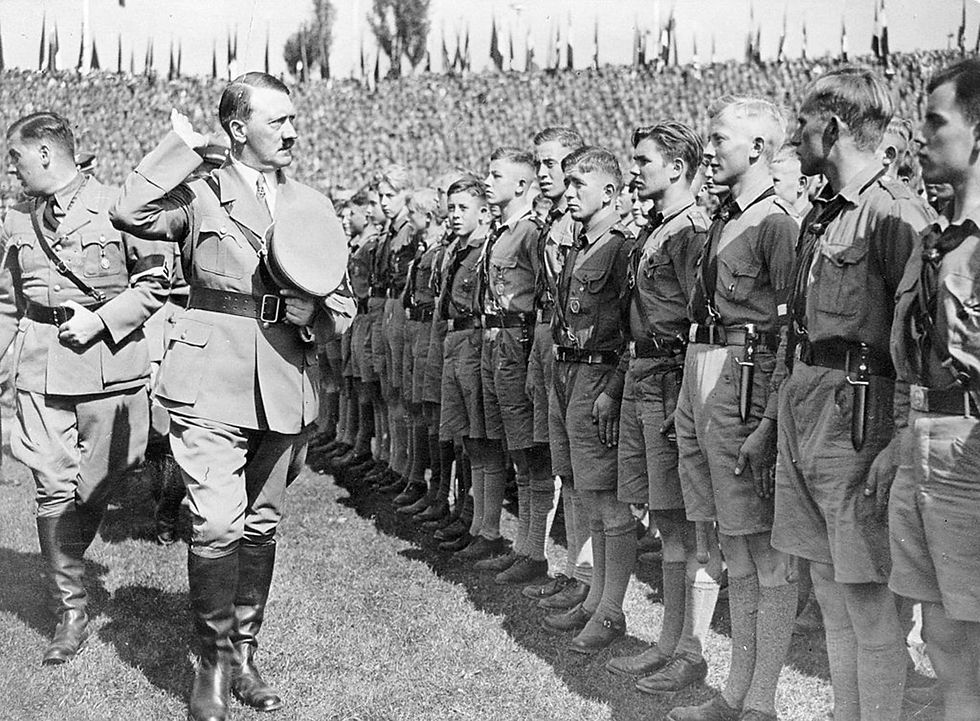Could The Jewish Holocaust Been Avoided?
- Michael Thervil

- Sep 18, 2023
- 4 min read
Written by Michael Thervil

At this point in history, everyone should either know or should have at least heard of the Jewish Holocaust. But what we are exploring in this article is the toughest question that we haven’t heard anyone ask yet and that is: “could the Jewish Holocaust been avoided?”. Before we deliver our answer to that question let’s take the time out to understand that there is a stark difference between one being a victim and one using their victimhood for world pity and social-economic gain. Again, that’s a lot to be said and we imagine that could be tough for many people to hear and digest - especially those in the Jewish faith and community but it’s time that we all admit that the question presented is something that should be respected when asked.

Here at VEDA Magazine, we only engage in non-bias journalism that is based on fact and not aligned with or subscribe to any one political party, ideology or religious organization or faith. Therefore, we reserve the right to articulate any fact no matter how contrary or unpopular it is when it comes to popular opinion or to public thought leadership. With that being said let’s get into the question that was previously asked: “Could the Jewish Holocaust been avoided?”.
And it seems that a stark answer of “yes” is appropriate. This position can be held because of a request made by Adolf Hitler to the rest of the world during an international conference which was known as the “Evian Conference”. It was July 6-15 of 1938 when 32 nations around the world met together in the French city of Evian for 9 days. It was where delegates from 32 countries from around the world who got together to figure out if and how many Jewish people would they allow into their countries as refugees to what was essentially a Nazi band on Jewish people living in Germany during the time. It was said by the German government at the time:
[paraphrasing] “How astounding it was that foreign countries criticized Germany for their treatment of Jewish people, but none of them wanted to open the doors to Jewish people when the opportunity was offered”.

It should be noted that the only country out of the 32 countries that attended the Evian Conference that would commit to accepting Jewish refugees was the Dominican Republic.
The reason for this, especially in America was the fear that the influx of Jewish refugees (or any influx of refugees) would not only result in those refugees taking away the citizens jobs who lived in those countries, but a huge migration of Jewish refugees, would result in being a strain on those hosting countries’ economies. In the following year in America (1939), a bill introduced by democratic New York Senator Robert Wagner, proposed that the United States should allow for up to “20,000 German refugee children under the age of 14 over the next two years to gain entry into America''. That bill was shot down within the committee citing that the influx of German/Jewish people would “deprive American children of aid”.

These actions have led many people to believe that the reason why the five-year Jewish Holocaust which occurred between the years of 1941-1945 was not necessarily Adolf Hitler’s hatred for Jews although it certainly played a part in it. The trifecta of world reluctance, lack of favorable action towards the Jews and the outright rejection by the rest of the world more than likely served as a huge catalysis for Adolf Hitler starting a “homicidal fire sale” on the Jewish population in Germany at the time. Keep in mind that the leadership in nearly every country needs some sort of “boogieman” to justify their adverse actions onto another nation or group of people to justify their cause. In this case the ends justify the means in Hitler’s case. Put another way, because he couldn’t essentially give away the Jewish people to other nations even though he formally made the request and provided an “out” for Jews; he was left with “more Jews in stock than what he wanted”. For Adolf Hitler, the “inventory limit” of Jewish people in Germany was “zero” unfortunately.
Another blow to the German Jewish population was that there was a revolt in Palestine against the British mandate that would allow Jewish people to migrate to that country in 1936. In what was known as the “White Paper” of 1939, the British rejected the establishment of an independent Jewish state and restricted Jewish people from seeking refuge in Palestine. Also included in the White Paper of 1939 was the fact that Jews were restricted from purchasing land but at the same time were provided protective provisions by Britain for the rights of Jews. That restriction stood until the establishment of Israel in 1948.
This is not to say that the “extermination” of Jewish people by Adolf Hitler was justified or even right - no one in their right mind could believe that. However, what we are saying is that there was a very big probability that the Holocaust that the Jews in Germany faced could have been avoided; but the world failed to act.
Sources:










Comments